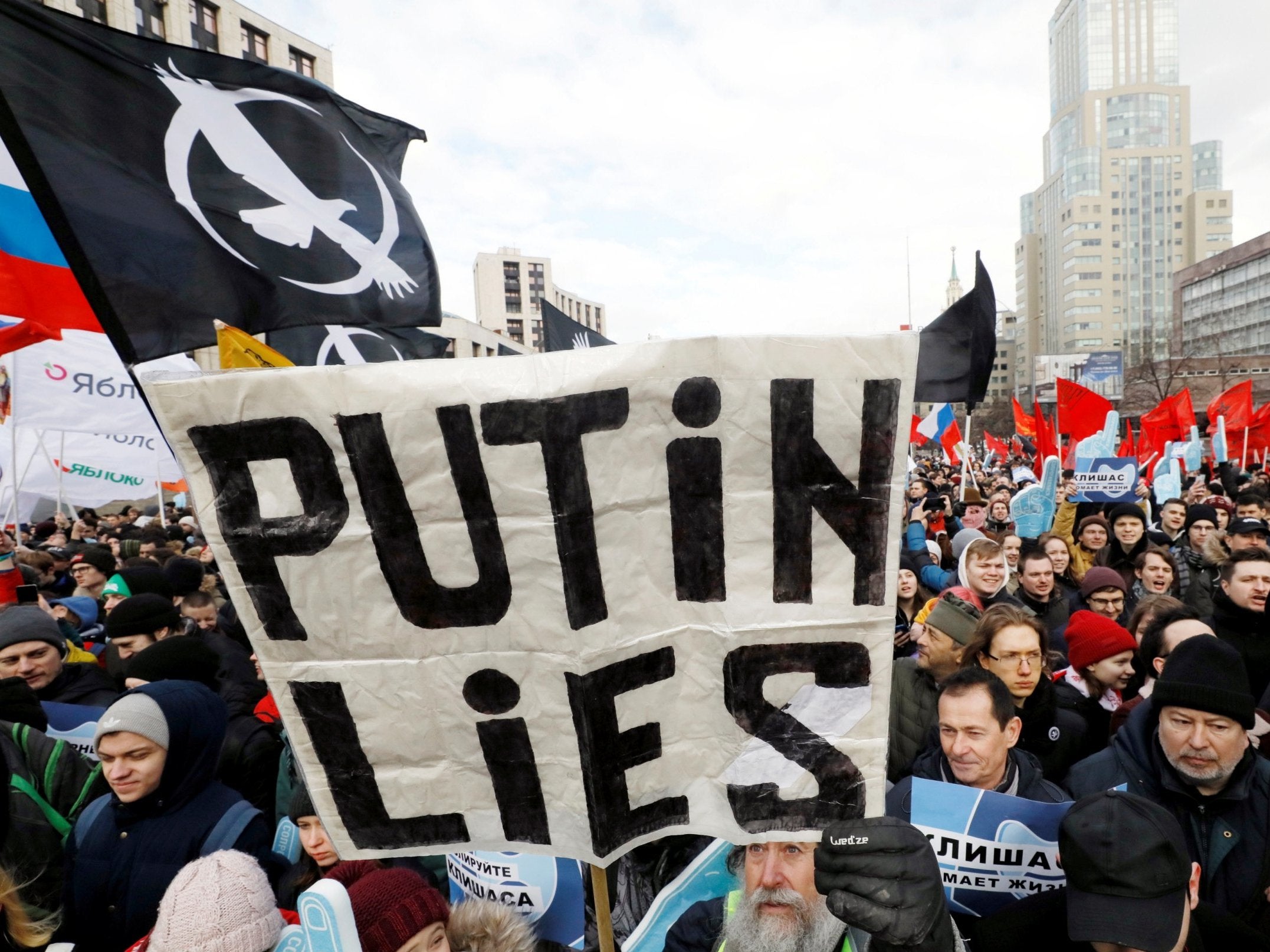Russians who insult government online to face fines, prison
Move is 'open declaration of establishment of direct censorship', say critics

Your support helps us to tell the story
From reproductive rights to climate change to Big Tech, The Independent is on the ground when the story is developing. Whether it's investigating the financials of Elon Musk's pro-Trump PAC or producing our latest documentary, 'The A Word', which shines a light on the American women fighting for reproductive rights, we know how important it is to parse out the facts from the messaging.
At such a critical moment in US history, we need reporters on the ground. Your donation allows us to keep sending journalists to speak to both sides of the story.
The Independent is trusted by Americans across the entire political spectrum. And unlike many other quality news outlets, we choose not to lock Americans out of our reporting and analysis with paywalls. We believe quality journalism should be available to everyone, paid for by those who can afford it.
Your support makes all the difference.Russia's parliament has approved new fines for people who insult the state or government online, sparking fierce criticism the move is an attempt to silence President Vladimir Putin's critics.
The bill proposes fining people up to 100,000 roubles (£1,150) for showing "blatant disrespect" for the authorities, Russian flag or constitution. Repeat offenders would face a prison sentence of up to 15 days.
Human rights activists were among those calling for the law, which was approved by the upper house of parliament on Wednesday, to be thrown out.
In an open letter, several prominent cultural figures warned that the bills were an "open declaration of the establishment of direct censorship". The Kremlin denied the legislation amounts to censorship.
The second draft law would give authorities the power to block websites if they fail to comply with requests to remove information that the state deems to be factually inaccurate.
Individuals would be fined up to 400,000 roubles (£4,600) for circulating false information online that leads to a "mass violation of public order".
In cases where so-called fake news was found, Russia's media regulator could restrict access to the website and instruct it to delete the content.
The bills - which now only need Mr Putin's signature before becoming law - received broad support in the upper house, days after thousands rallied to protest tightening internet restrictions.
Those protests were in response to a bill in parliament that would route all internet traffic through servers in Russia, making virtual private networks (VPNs) ineffective.
Andrei Klishas, from Putin's United Russia party and one of the authors of the latest "censorship" bills, said false reports that inflated the death toll at a fatal shopping centre fire in Siberia last year illustrated the need to tackle fake news.
"This kind of thing must be screened by the law," he said.
Council member Ekaterina Schulmann said the legislation, which the lower house of parliament approved in January, duplicated existing law and added that it could be applied arbitrarily because its wording was so vague.
"The sphere of fake news, insults and so on, is under strict regulation in many countries of the world, even in European states," Kremlin spokesman Dmitry Peskov said. "This undoubtedly has to be done in our country, too."
Tougher internet laws introduced over the past five years require search engines to delete some search results, messaging services to share encryption keys with security services and social networks to store users' personal data on servers within the country.
Additional reporting by agencies
Join our commenting forum
Join thought-provoking conversations, follow other Independent readers and see their replies
Comments